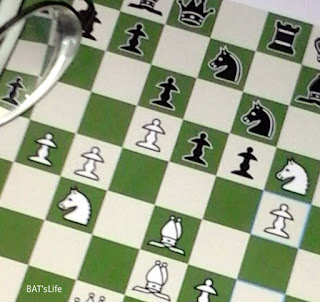Studying Chess
At first glance, chess appears to be “simple” but actually, the game is “complex”
and very “dynamic”. Each move played, immediately changes the situation on the board and requires examination to determine its tactical or strategical purpose. A move may be considered “correct”, “unsound” or a “blunder” only after spending some time to analyze its objective. With a possible million moves and combinations, chess is a game that definitely requires time to study.
As it said, chess is a game that is easy to learn but very difficult to master. The three phases of the game – opening, middlegame and endgame - requires a great investment of time to master. There are at least a hundred known openings in chess with variations numbering to a thousand. If we add the million different middlegame and endgame complications, we can imagine the amount of time needed to study chess.
As it said, chess is a game that is easy to learn but very difficult to master. The three phases of the game – opening, middlegame and endgame - requires a great investment of time to master. There are at least a hundred known openings in chess with variations numbering to a thousand. If we add the million different middlegame and endgame complications, we can imagine the amount of time needed to study chess.
In this very busy world, only a few are blessed with time to spend for a game like chess. Almost everyone, with the exception of the elite few, is busy with trying to survive. More than forty hours in a week are usually devoted to work or school and if there is any time left, would you spend it to study chess? If you are serious the game, you indeed need to spend the time to study chess. In fact, you got to devote a lot of “study time” to chess if you desire to improve your game, increase your rating or acquire a title. Talent alone is not enough in chess.
But how do you study this complex game? One recommendation from experts is to study the endgame first before other phases of the game. I think this is very logical since in the endgame you handle only a few pieces. If you learn the rigors of handling the few pieces left on the chessboard during the endgame, then you can learn to handle all the pieces during the opening and the remaining pieces during the middlegame. Studying the endgame, however, requires a lot of patience because this is the phase of the game that is dull compared to studying the openings or tactics. From the endgame, you can proceed to study tactics then the openings.
Studying chess requires a lot of patience and perseverance. In fact, patience is the key. It cannot be done overnight as if you are cramming for an exam. Study chess gradually. Based on your existing circumstance, create a realistic schedule to study chess and stick to that no matter what.



Comments